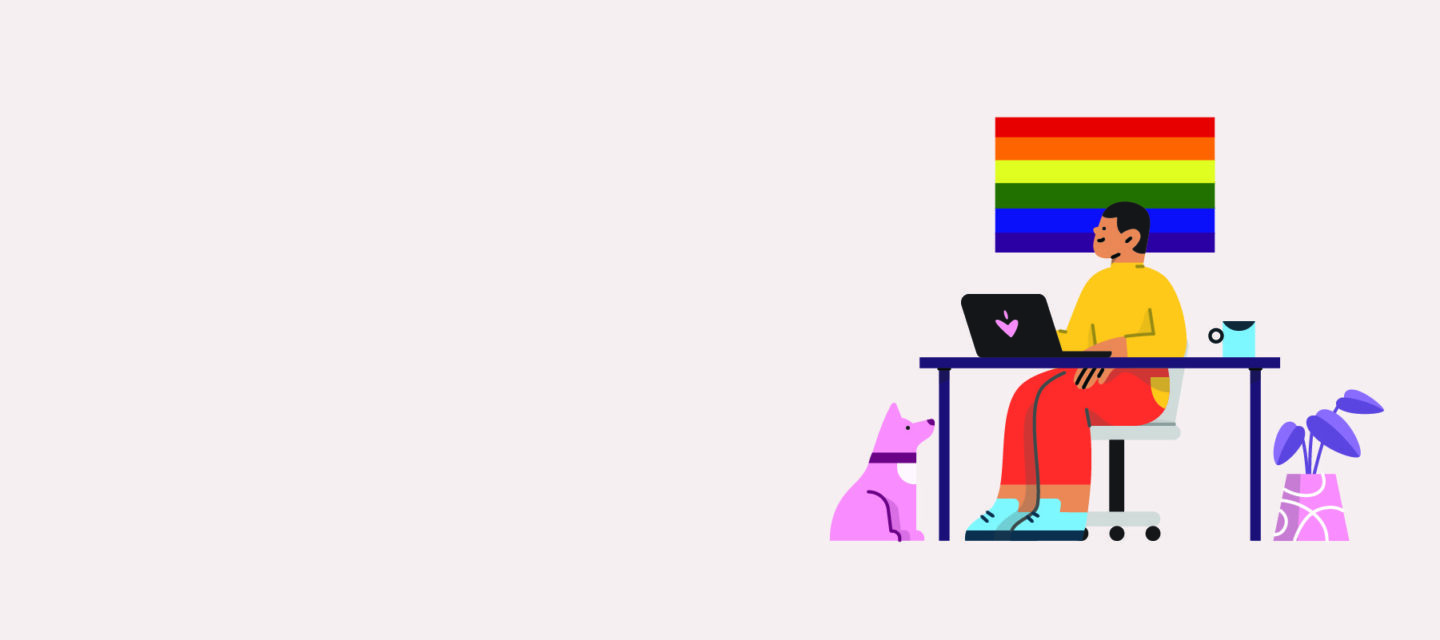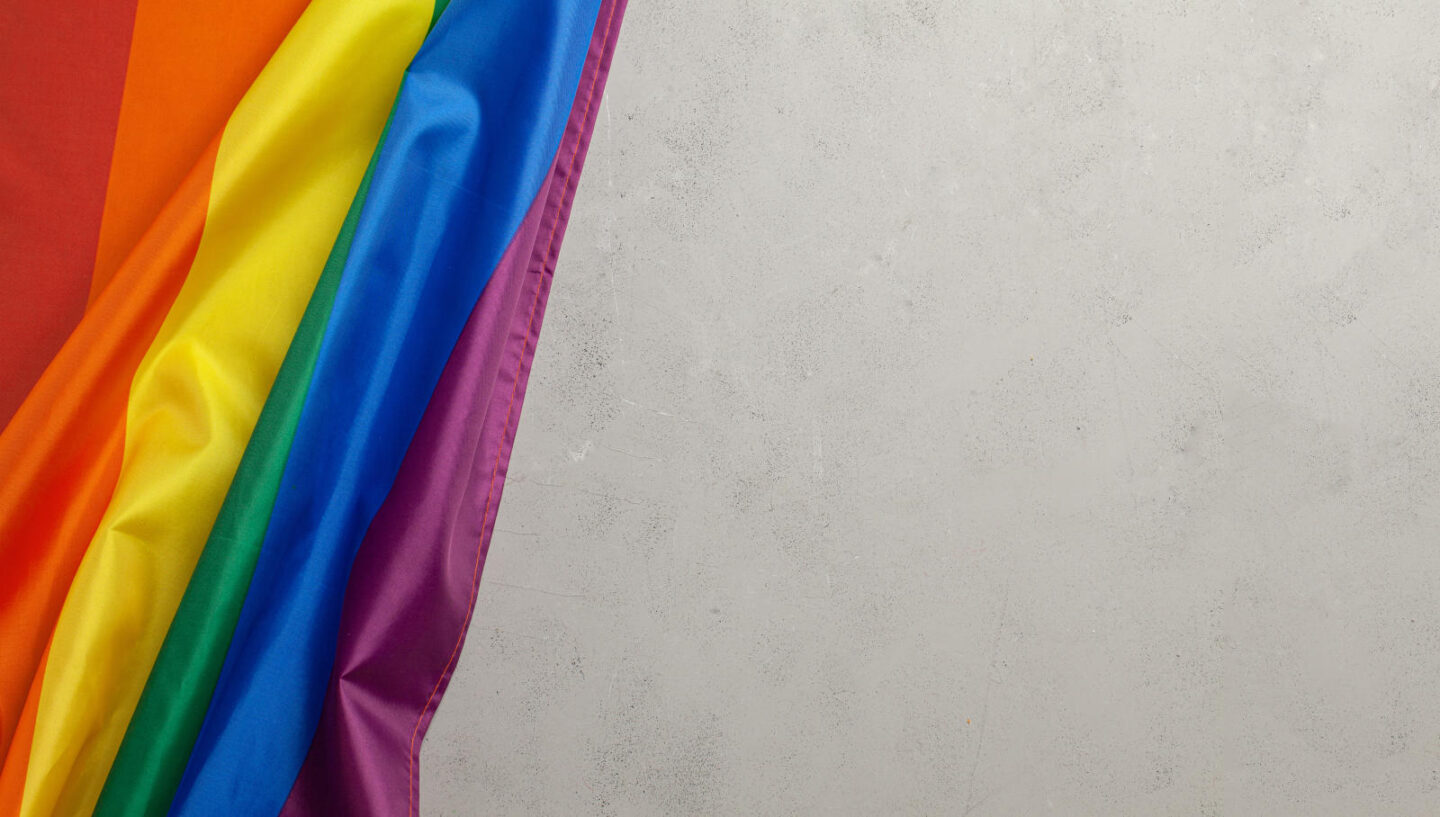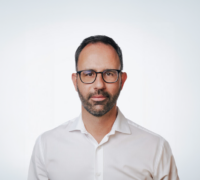Building a sustainable LGBTQ+ network
My first step was to look at what was already there. I discovered that, within my cluster, there were already some LGBTQ+ initiatives, including a group of employees in Munich and some people organized in Switzerland. At that point, many employees did something, but it was not communicated broadly, neither within nor outside dentsu. One colleague mentioned that he would be interested in setting up an official LGBTQ+ network for our cluster. I agreed to become the executive sponsor, and the two of us started what is now called PROUD. Of course, we wanted to get lesbian, gay, trans, and queer people on board, but right from the beginning, it was important for us to reach out to friends and allies. The aim was to build a sustainable community that is integrated into our organization and has strong connections to other diversity networks. The community is called PROUD because that best describes our members, and it shows that everyone is welcome.
Currently, the group has around 60 members – and not all identify as queer. One reason for this is that we are one of the few networks within the company that pushes diversity and inclusion where women and men of all sexual orientations can join. Many straight colleagues have been looking for a network in which they can have a positive impact on our culture – and they found this at PROUD. Others just wanted to be part of a network to connect with other people, or they have LGBTQ+ friends or family. Our core aim is community building, creating a safe space, raising awareness for LGBTQ+ issues within the company, and making company policies more inclusive. Post-COVID, and in the context of ongoing economic insecurity, the world has shifted; there is a universally felt need for a sense of belonging to your company and being able to express your true self. DE&I is also an important topic for many people who apply at dentsu.
Also, colleagues from our offices in Belgrade or even Manila are part of our community. There is a lot of mutual support, even though there are some people who don’t want to – or are not able to – be out at their workplace. I have the impression that we have an incredibly open culture globally – even in countries where homosexuality is illegal or seen as a taboo – and that people choose to work for an international company like dentsu to experience this openness and liberty. This also relates to the business impact of PROUD. We aim to have an impact on our clients and our industry and consult them on inclusive marketing. We are a data-driven company and use this data when consulting our clients – for instance, in diversity in advertising. It’s a fact that 72% of the LGBTQ+ community thinks the way they are represented in advertising is tokenistic.
The key for us at dentsu is an intense collaboration with ERGs (employee resource groups) from other companies as well as the international exchange with our other LGBTQ+ networks – it’s where we get inspiration and inspire others. Because ERGs are essential for us, those who actively work in them can, in agreement with their line managers, officially dedicate work time to them. As a listed company with quarterly targets, dentsu is very much focused on figures. Many colleagues said they would like to be more involved in DE&I topics but that they did not want to jeopardize their careers by falling behind with their business targets. As a solution, we integrated ERG participation in our job profiles. As of 2022, every executive at dentsu now has DE&I targets – and my work for PROUD is part of my targets as CFO.
PROUD also contributes to the company in pure business terms. In addition to workshops and learning sessions, we recently began to shift our focus towards collecting data that shows – both internally and to our clients – the importance of diversity and inclusion in advertising and marketing. With this, we also aim to have a positive impact on society by providing a more inclusive image of the world through communication and content. Coming back to my personal story, as I’m now in my 40s and have reached a certain career level, it’s time for me to have a positive impact on our culture at dentsu and on the communities in which we operate. Having a clear opinion and voice is so important – you impress no one by throwing around catchwords. The personal side of leadership, including showing vulnerability, was not immensely popular among senior leaders, but it’s starting to get appreciated more. This has an enormous impact on culture and motivation and it’s a crucial part of what leadership is about today.





 Audio available
Audio available
